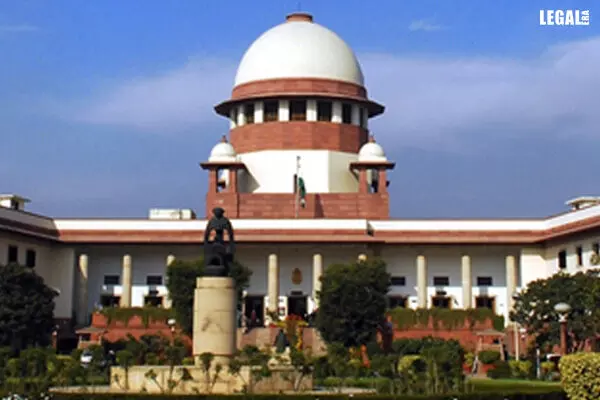- Home
- News
- Articles+
- Aerospace
- Artificial Intelligence
- Agriculture
- Alternate Dispute Resolution
- Arbitration & Mediation
- Banking and Finance
- Bankruptcy
- Book Review
- Bribery & Corruption
- Commercial Litigation
- Competition Law
- Conference Reports
- Consumer Products
- Contract
- Corporate Governance
- Corporate Law
- Covid-19
- Cryptocurrency
- Cybersecurity
- Data Protection
- Defence
- Digital Economy
- E-commerce
- Employment Law
- Energy and Natural Resources
- Entertainment and Sports Law
- Environmental Law
- Environmental, Social, and Governance
- Foreign Direct Investment
- Food and Beverage
- Gaming
- Health Care
- IBC Diaries
- In Focus
- Inclusion & Diversity
- Insurance Law
- Intellectual Property
- International Law
- IP & Tech Era
- Know the Law
- Labour Laws
- Law & Policy and Regulation
- Litigation
- Litigation Funding
- Manufacturing
- Mergers & Acquisitions
- NFTs
- Privacy
- Private Equity
- Project Finance
- Real Estate
- Risk and Compliance
- Student Corner
- Take On Board
- Tax
- Technology Media and Telecom
- Tributes
- Viewpoint
- Zoom In
- Law Firms
- In-House
- Rankings
- E-Magazine
- Legal Era TV
- Events
- Middle East
- Africa
- News
- Articles
- Aerospace
- Artificial Intelligence
- Agriculture
- Alternate Dispute Resolution
- Arbitration & Mediation
- Banking and Finance
- Bankruptcy
- Book Review
- Bribery & Corruption
- Commercial Litigation
- Competition Law
- Conference Reports
- Consumer Products
- Contract
- Corporate Governance
- Corporate Law
- Covid-19
- Cryptocurrency
- Cybersecurity
- Data Protection
- Defence
- Digital Economy
- E-commerce
- Employment Law
- Energy and Natural Resources
- Entertainment and Sports Law
- Environmental Law
- Environmental, Social, and Governance
- Foreign Direct Investment
- Food and Beverage
- Gaming
- Health Care
- IBC Diaries
- In Focus
- Inclusion & Diversity
- Insurance Law
- Intellectual Property
- International Law
- IP & Tech Era
- Know the Law
- Labour Laws
- Law & Policy and Regulation
- Litigation
- Litigation Funding
- Manufacturing
- Mergers & Acquisitions
- NFTs
- Privacy
- Private Equity
- Project Finance
- Real Estate
- Risk and Compliance
- Student Corner
- Take On Board
- Tax
- Technology Media and Telecom
- Tributes
- Viewpoint
- Zoom In
- Law Firms
- In-House
- Rankings
- E-Magazine
- Legal Era TV
- Events
- Middle East
- Africa
Supreme Court Rejects Plea To Include Tribunals Under E-Courts Project

Supreme Court Rejects Plea To Include Tribunals Under E-Courts Project
The Supreme Court dismissed a plea to include tribunals in the National Judicial Data Grid (NJDG).
The NJDG is a comprehensive database that encompasses orders, judgments, and case details from 18,735 district and subordinate courts, as well as high courts and the Supreme Court. Established under the eCourts Project, it serves as an online platform for judicial data management.
A bench comprising Chief Justice of India (CJI) DY Chandrachud and Justices JB Pardiwala and Manoj Misra clarified that the eCourts Project is limited to district courts, high courts, and the Supreme Court and does not extend to tribunals. The Court noted that including tribunals in the NJDG would lead to funding issues.
The Court stated, “You may approach the Department of Justice regarding this. NJDG is part of the eCourts project. It looks at district courts, high courts, and the Supreme Court. So eCourts does not look at tribunals at all. So we cannot impinge on this. Otherwise, funds will be a problem. 7,000 crores were allocated for these courts and not the tribunals. The moment we say tribunals will be brought on, the funds by the Center will be spent on tribunals.”
The petitioner argued that the Supreme Court could direct additional funds to include tribunals in the NJDG. However, the Court responded that there is no administrative sanction to incorporate tribunals into the eCourts project at this time.
“So tribunals cannot come under it now. The plea to bring tribunals under NJDG cannot be accepted since it's a project under the eCourts project. The petitioner can avail other remedies it has under law and can approach the government as well,” the Court stated while dismissing the plea.
The NJDG updates its data in near real-time through connected district and taluka courts, offering insights into judicial proceedings and decisions across computerized district and subordinate courts, as well as the High Court and Supreme Court. The Supreme Court was integrated into the NJDG in September 2023.



